Published 5 December 2023 ● Last Updated on 5 December 2023
In an era where environmental consciousness is on the rise, our daily consumer decisions provide a clear path to minimizing our ecological footprint. We consumers are trying to buy better – including the cleaning products we use. Our desire to be greener has seen a response in the supermarket aisles, where a range of “sustainable” cleaners, marketed as plant-based, chemical-free or bio-cleaners, are establishing their presence as an alternative to traditional cleaning agents, promising both sustainability and efficiency.
But what are bio-based cleaners? And does the “eco” label they lay claim to really hold up?
Let’s start by considering how matters currently stand: “Most cleaning and laundry products available today contain chemicals made from fossil fuel feedstocks, a non-renewable source of carbon,” admits Unilever. In contrast, bio-based cleaners, as the name suggests, contain ingredients that have been derived directly from nature – think plant oils, bacteria and enzymes. Created from renewable resources, they have gained traction for their potential to reduce the harmful effects associated with traditional cleaning products, especially as consumers associate the term bio with toxin-free, clean and green products.
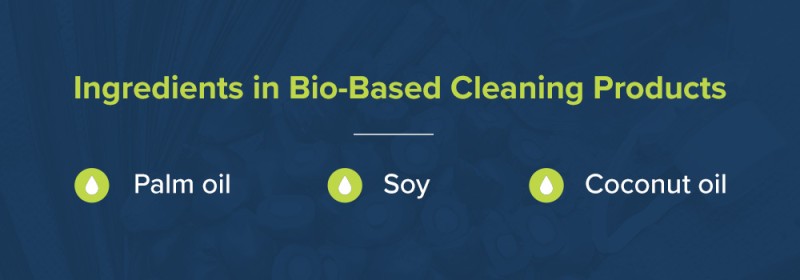
To judge if this potential is indeed achieved, two questions need to be considered –
- Sustainability: Are bio-based cleaners truly green?
- Efficiency: Do bio-based cleaners get the job done?
To help you navigate the twin aims, we have set out 6 points of consideration for you to buy greener, buy better!
Key Considerations When Choosing Bio-Based Cleaners:
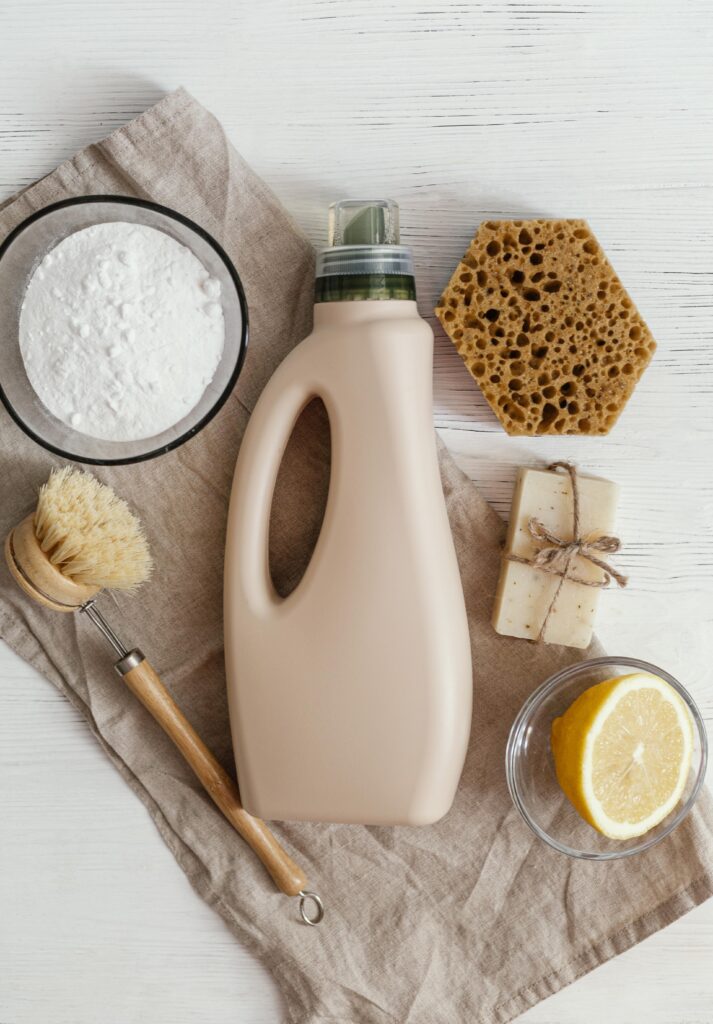
#1 Ingredients: Take a closer look
One of the primary attractions of bio-based cleaners is their eco-friendly composition. Derived from natural sources, these cleaners often boast biodegradable ingredients, reducing the environmental impact associated with their production and disposal. However, it’s essential to examine the entire life cycle of these products to determine their true sustainability. Factors such as raw material sourcing, manufacturing processes, and packaging materials all contribute to the overall environmental footprint of a bio cleaner.
Our tip: Do not assume that a bio-based product is automatically a better choice. Check its ratings for ecological and health concerns in this EWG guide to healthy cleaning.
# 2 Efficiency: The truth is out there
Skepticism often shrouds the efficiency of bio-based cleaners. But in reality, these products can hold their own or even outperform; many enzyme-based cleaners are admired for their longer-lasting result due to “live” formulations. Of course, the efficacy of any category – be it bio-based or fuel-based – will vary widely from one brand/product to another. Understanding the intended use and formulation of a bio-based cleaner is crucial in assessing its efficacy.
Our tip: Read the fine print to check if the product is appropriate for the purpose you have in mind. Test in small quantities before committing to buy a big amount!
# 3 Greenwashing: Help is at hand
The marketplace is flooded with products claiming eco-friendliness. How can consumers separate genuine sustainability from greenwashing?
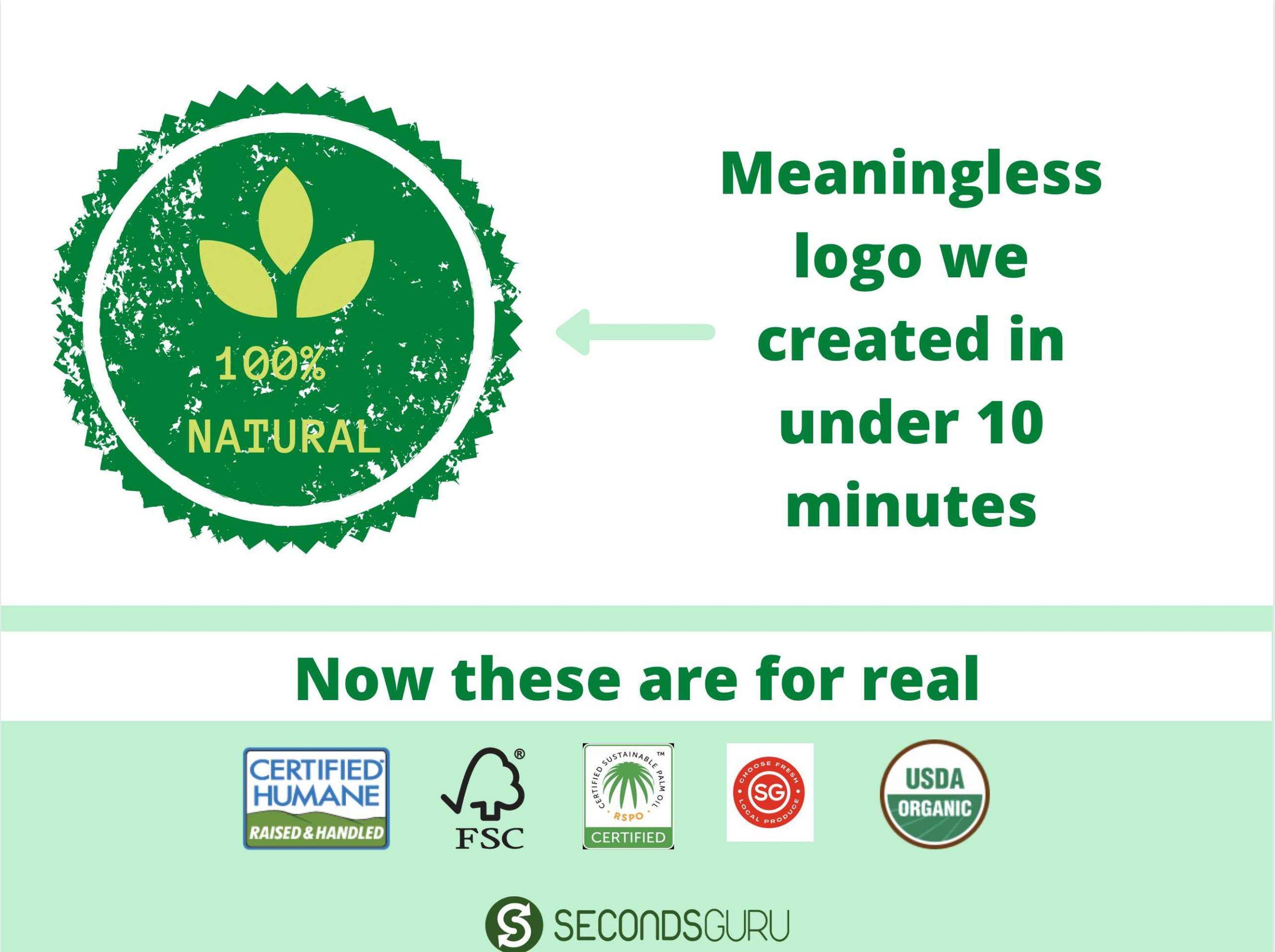
Our tip: Third-party certifications, such as RSPO, USDA Organic, FSC, and EcoLogo act as beacons of trust. These certifications validate a product’s environmental claims and offer a reliable guide in their pursuit of truly sustainable cleaning solutions.
#4 Packaging: Judge the cover
The sustainable journey of a bio-based cleaner doesn’t end with its formulation. Packaging materials, recyclability, and minimalistic design play pivotal roles in determining the overall ecological impact. Consider not only the contents but also the footprint left by the packaging.
Our tip: Looking for zero waste stores in Singapore? Here’s where you can go guilt free.
#5 Versatility: More is more
Bio-based cleaners often shine in their ability to multitask. A single product that addresses various cleaning needs minimizes consumption and waste. Assessing the versatility of a cleaner adds a pragmatic dimension to the sustainability equation.
Our tip: Why not start by tapping the versatility of things you already have in your home? Lemon, baking soda, vinegar – these are excellent ingredients to concoct your own cleaners
#6 Go local: Global impact starts at home
In a world connected by supply chains, the origin of a product carries weight. Opting for locally produced plant-based cleaners not only reduces transportation-related emissions but also supports local economies. A localized approach to sustainability amplifies the global impact of conscientious consumer choices.
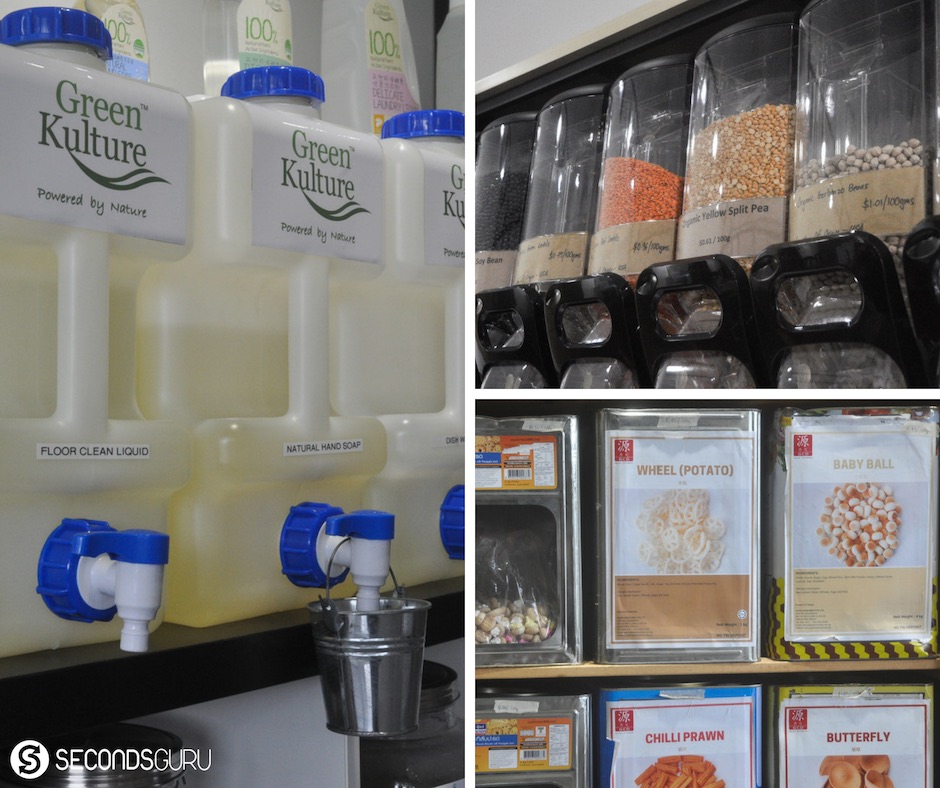
In the quest for sustainable living, bio-based cleaners offer a promising alternative to traditional cleaning products. However, a nuanced understanding of their production processes, ingredient sourcing, and overall impact on the environment is crucial. Consumers can prioritize products that strike a balance between sustainability and performance, ensuring a clean home without compromising environmental values. As the demand for effective and eco-friendly solutions grows, ongoing research and innovation will likely lead to even more powerful and sustainable bio-based cleaning options.
Related Articles
Zero Waste Cleaning | Everyday items we use that cut the toxicity, the grime and the cost!


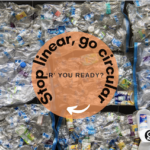
0 Comments